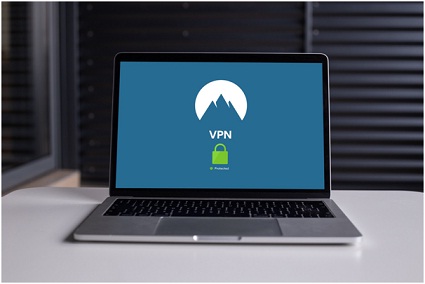A Virtual Private Network, or a VPN, is a connection method that allows the secure traffic of data between the connected devices. A VPN protects the data by encrypting it and thus granting its secure transfer. People use a VPN service to safeguard their privacy and ensure the secure sharing of sensitive information.

At the same time, there’s a question of speed, namely, how all that encryption process affects the speed of your Internet connection. In this article, we will explore this topic in detail.
So, can a VPN slow down your Internet?
The short answer is yes, it can. However, everything is not that simple, as it all depends on the circumstances.
If you are using a high-quality, reliable VPN service, you will not notice the difference. Most VPN providers offer a decent speed with a minor decrease, as compared to the usual Internet speed. This reduction is caused by the encryption process, which protects your network.
With that said, certain factors make the connection through a VPN slower.
1. Slow Internet
If your Internet speed is slow to begin with, a VPN will not solve the problem. Some users may purchase a VPN service only to make their Internet perform faster, but in most cases it is ineffective and they end up with even a slower connection than previously. So, if you believe that a VPN affects your Internet, first ensure that you have an adequate speed by running a speed test, as described in this guide.
2. The physical location of the server
When it comes to the speed, the distance to the VPN server you are connected to is important. The farther the server is, the longer it takes for the packets of data to be transmitted. That is why, for faster performance, make sure to connect to the server that is located nearest to you. Good VPN providers have a range of servers all over the world, so you can easily choose the most suitable one.
3. Server overload
It is possible for a server to get overcrowded when there are too many users and not enough bandwidth. This situation happens rather frequently with free VPNs. In this case, the solution is to try connecting to a different server, where there may be fewer visitors. Ultimately, you should choose a provider with no bandwidth limitations on their servers.
4. Interference
Some firewalls or anti-malware programs may interfere with your VPN and slow down your connection. Although it is not that common, some of the security programs may be configured to affect the traffic and the CPU usage of your computer. Make sure to use one of the best antivirus options to avoid interference.
5. Encryption
The level of encryption has its effect on the speed as well. The stronger it is, the more CPU it takes up. Mostly, it concerns older devices though. In this case, you may switch to a lighter protocol.
In conclusion
So, as you can see, it is not a myth that a VPN can make your Internet slower. That is why you should stay away from a free VPN and choose a legitimate provider that offers reliable service.